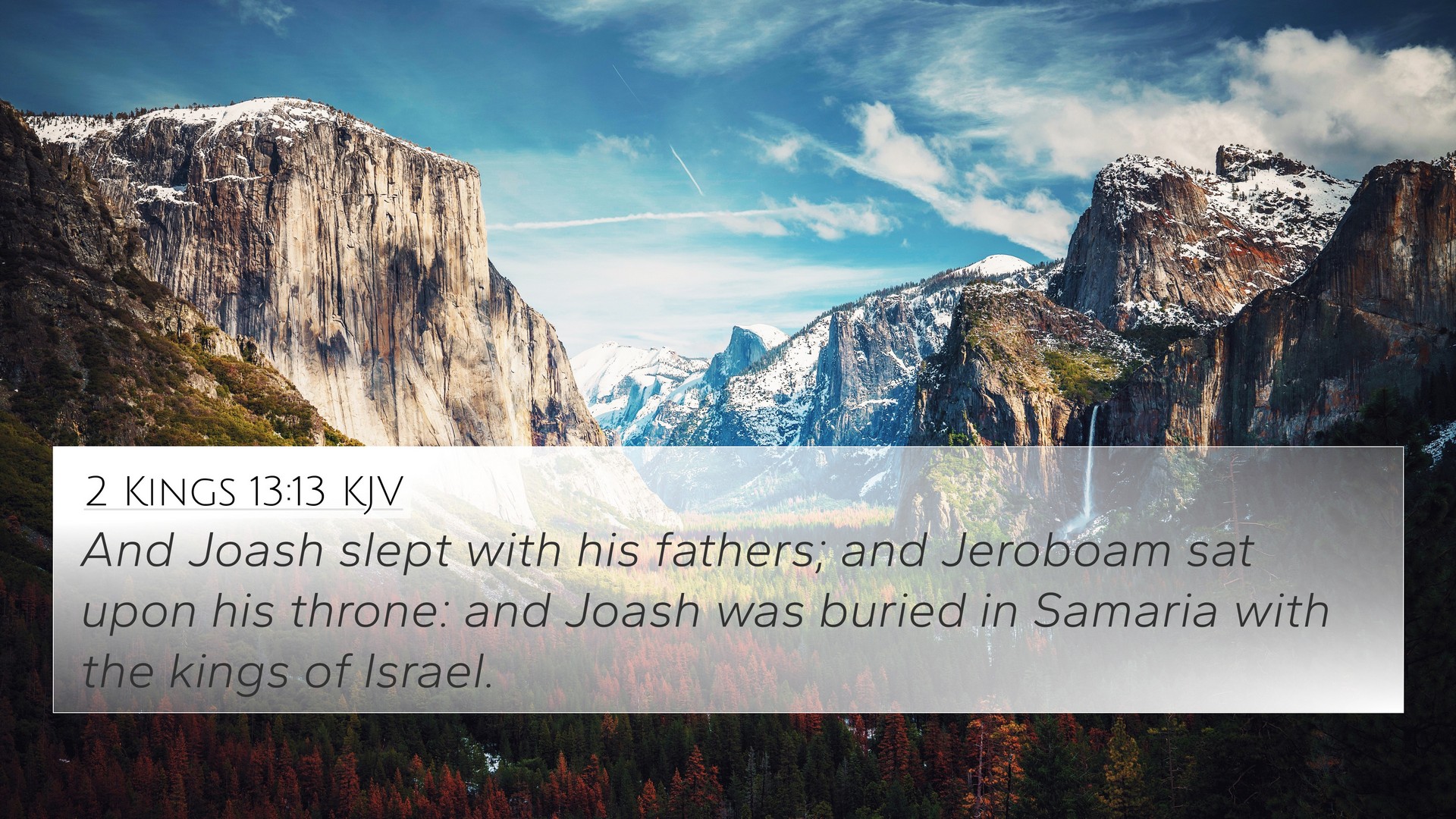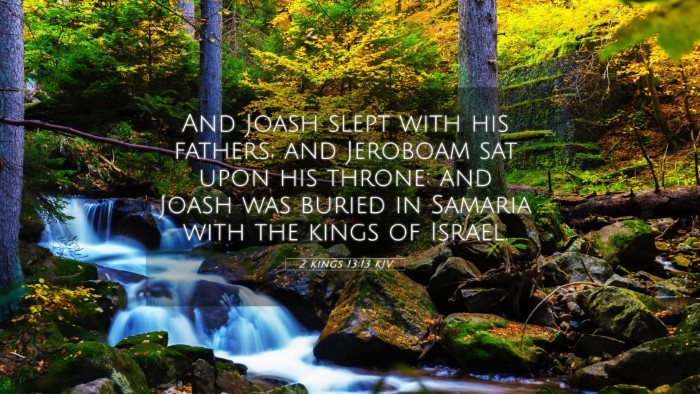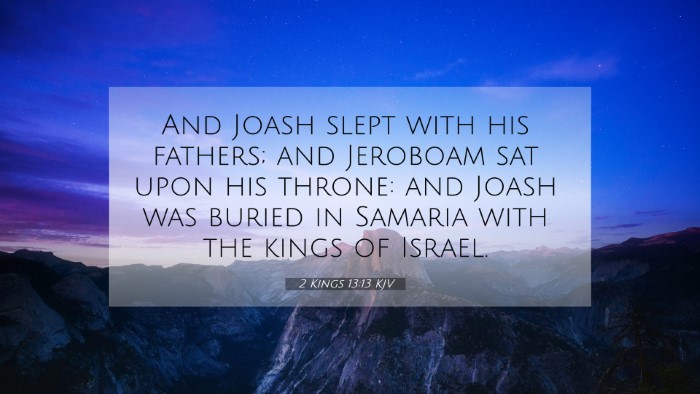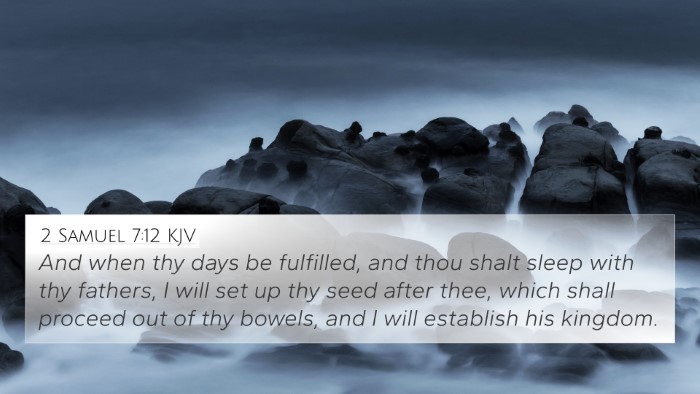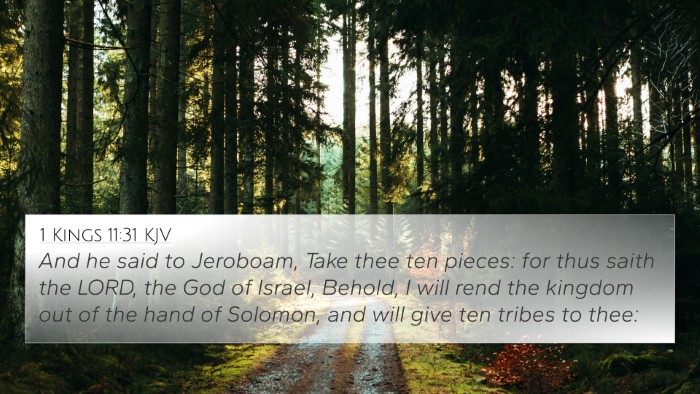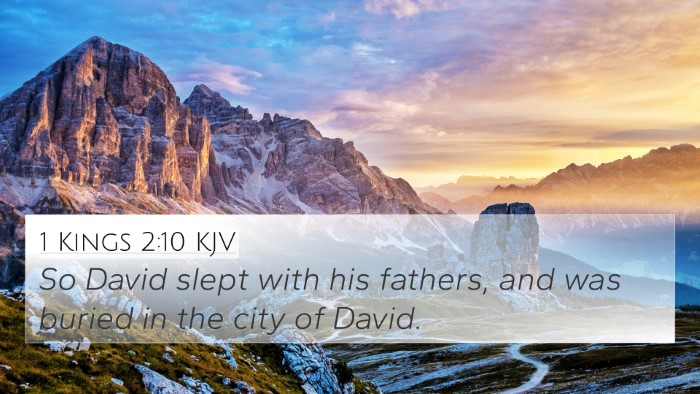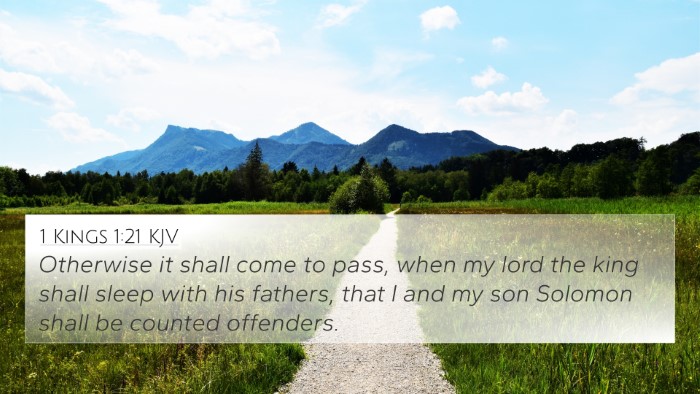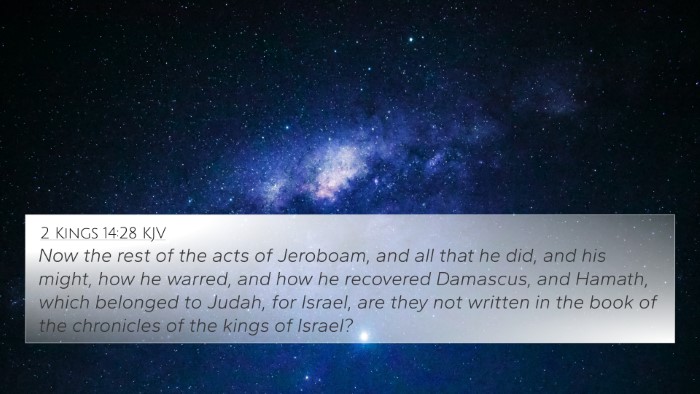Meaning and Interpretation of 2 Kings 13:13
2 Kings 13:13 states: "And Jehoahaz slept with his fathers; and they buried him in Samaria: and Joash his son reigned in his stead." This verse encapsulates a key moment in the succession of kings in Israel. Below, we explore its significance by combining insights from various public domain commentaries.
Contextual Analysis
This verse occurs in a timeframe where the kings of Israel are being chronicled. It marks the death of Jehoahaz and the ascension of his son Joash. This transition is pivotal as it signifies not just a change in leadership, but also a continuation of the legacy established by previous kings.
Commentary Insights
-
Matthew Henry's Commentary:
Matthew Henry highlights the importance of Jehoahaz's reign as a period marked by Israel's decline due to idolatry and disobedience to God. His death is seen as a part of God's judgment upon Israel. The burial in Samaria signifies his connection to the northern kingdom, yet his legacy is one of failure rather than achievement.
-
Albert Barnes' Commentary:
Albert Barnes comments on the political implications of this verse. He notes that the transition to Joash is crucial as a potential turning point in Israel's fate. The mention of burial in Samaria also indicates the traditional practices surrounding royal dignity in Israel’s history.
-
Adam Clarke's Commentary:
Adam Clarke emphasizes the familial relationship as he discusses the generational shifts within the monarchy of Israel. He reflects on the spiritual implications of Jehoahaz's reign and how it sets the stage for Joash, who would subsequently have to confront the challenges posed by earlier failures.
Thematic Connections
The themes presented in this verse can be linked to broader biblical narratives. Jehoahaz's failure reflects the struggles faced throughout the history of Israel and can be cross-referenced with other scripture passages to explore the cycles of sin and repentance.
Cross-References
- 2 Kings 10:30 - God's judgment and reward to Jehu for his actions.
- 2 Kings 14:1-6 - The reign of Joash and its implications on Israel's faithfulness.
- Genesis 49:10 - The prophetic significance of Judah's line in leadership, compared to Northern kings.
- Amos 5:27 - Call for Israel to return to the Lord amidst failures of leadership.
- Jeremiah 22:10-12 - Commentary on the outcomes of rulers and God's plan for Israel.
- Hosea 1:4-6 - Link to the continuing narrative of God's judgment on Israel.
- Matthew 1:12 - The genealogical lineage emphasizing the significance of leadership.
Conclusion
In analyzing 2 Kings 13:13, it becomes evident that the verse is not merely a historical account but a reflection of spiritual principles that resonate throughout the Bible. The connections between this verse and others provide insight into God’s ongoing relationship with His people, revealing the patterns of fruitfulness and failure in leadership.
Further Study and Reflection
For those interested in deeper understanding, various tools for Bible cross-referencing can enhance study sessions. These tools include Bible concordance and Bible reference resources, which help identify connections between Bible verses and facilitate comparative Bible verse analysis.
By engaging with Bible cross-reference guides and employing effective cross-referencing Bible study methods, one can enrich their understanding of both the Old and New Testaments, making connections that reveal the unity and coherence of scripture.
Interaction with Other Scriptures
For those asking what verses are related to 2 Kings 13:13, a deeper dive into the lineage of kings and prophetic warnings can provide a comprehensive view. Understanding how to find cross-references in the Bible enables individual readers to explore the vast tapestry of God’s word, enriching personal faith and knowledge.
